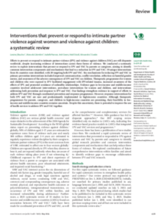Demographic Data
|
Sources: World Bank, UNICEF, UNDP HDR 2015, DHS 2014 |
Displaying 111 - 120 of 14348
KYIV, Ukraine—Valeria Sydorova walked toward the Russian border post, her nerves steeled by the proximity of her goal: to get home. The 17-year-old had wiped her phone of anything the Russians might find suspicious, had traveled solo for hundreds of miles and was now within touching distance of Ukraine.
Charity says children could be deported as adults before age can be formally determined.
New Delhi - Children in India are being wrongfully incarcerated with approximately 9,681 children found to have been wrongly held in adult facilities over six years from January 1, 2016 to December 31, 2021, a study by London-based organisation iP
A nun and care worker who abused vulnerable children at a Scottish orphanage have had their three-year prison sentences quashed.
As Somali forces navigate a delicate transition to assume the country’s security responsibilities from African Union peacekeepers who have secured civilians and personnel of international agencies for the past 17 years, experts say that four milli
In a secret meeting as Victoria’s budget was being announced, the full scale of the historical abuse of children in state care – and its impact on the government’s finances – was being laid bare.
These researchers conducted a systematic review to explore interventions that prevent or respond to intimate partner violence (IPV) and violence against children (VAC) by parents or caregivers, aiming to identify common intervention components and mechanisms that lead to a reduction in IPV and VAC.
Since the coordinated attacks operated by armed groups in late February, UNICEF and its partners have rapidly scaled up their efforts, reaching over 50,000 displaced children and families impacted by the resurgence of violence in various parts of
This webinar aimed to create space for reflection on how child rights, parental rights, and family values intersect within faith communities and in public discourse.
This webinar aims to create space for reflection on how child rights, parental rights, and family values intersect within faith communities and in public discourse.

